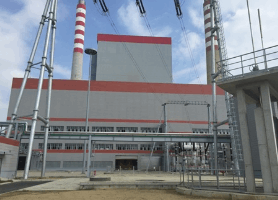viewed: 日期:2018/10/30 15:37:26
We provide our dust removal services based on our proprietary low-low temperature dust removal technology and wet ESP technology. Dust removal, part of our integrated services offered to power plants, complements our other emissions control technologies and forms synergies with our desulfurization and denitrification services. Our business model for dust removal services was EPC services. We have accumulated significant experience in the design, installation, commissioning, maintenance and management of dust removal system of power plant boilers, and successfully finished many projects in several large power plants in the PRC. We possess advanced technology in dust removal system. As the newly promulgated Power Plant Air Pollution Emission Standards, which came into effect since January 1, 2012, has tightened dust emissions standards for power plants to 20 mg/m3. In December 2015, according to the Proposals for Comprehensively Implementing the ultra-low Emissions and Energy-saving Upgrade of Coal-fired Power Plants issued by the MEP, NDRC and National Energy Administration, the “ultra-low emission” standard is 10 mg/m3. We anticipate that newly built power plants and existing power plants installed with non-compliant dust removal appliances will need to install or upgrade to more efficient appliance, such as our WESP.
The low-low temperature dust removal refers to the technology of using flue gas cooler before the flue gas passing through the dry ESP to reduce the temperature of flue gas to below 85℃, which allows the effective removal of SO3 and improves the collection efficiency of dry ESP. The application of low-low temperature dust removal can control the emission of PM 2.5, allows the residual heat recovery and lowers the water consumption of desulfurization system. Our dust removal technology has been awarded three patents in total in the PRC.
|
|
